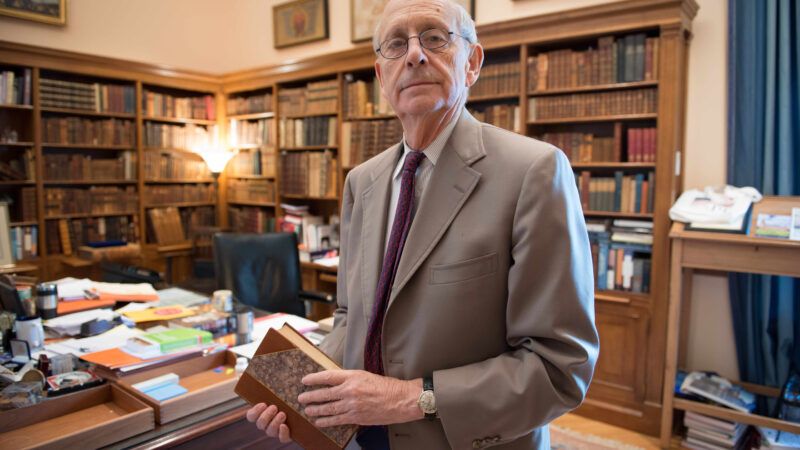Is Stephen Breyer About To Retire? His Clerk-Hiring Spree Suggests Otherwise.
Progressive activists are pushing the 82-year-old justice to step down.

"We are now firmly in the window when past justices have announced their retirement, so it's officially worrisome that Justice Breyer has not said yet that he will step down. The only responsible choice for Justice Breyer is to immediately announce his retirement." So declared Brian Fallon, executive director of the progressive activist group Demand Justice. Fallon's outfit has clearly set its sights on the 82-year-old jurist, launching a new pressure campaign last week under the none-too-subtle slogan Breyer Retire.
Is Breyer actually planning to step down anytime soon? Probably not, at least judging by the fact that Breyer just finished hiring a full slate of four clerks for the Supreme Court's 2021–2022 term, which begins in October. Typically, a justice who is nearing retirement does not do so much staffing up for the future.
Of course, Justice Anthony Kennedy did announce his retirement after he hired a full slate of clerks, so there is a recent precedent for Breyer doing the same thing now. On the other hand, as the legal writer David Lat has observed, "I do think Justice Kennedy was especially likely to try and cover his tracks; if Justice Breyer has hired four clerks for OT 2021, I think it's most likely because he expects to be on the Court at that time." Lat, a savvy court watcher, thinks that Breyer's hiring spree means there is now "a 70-30 chance that Justice Breyer remains on the Supreme Court for at least one more Term."
Breyer recently disappointed progressive activists in another big way. In a Harvard Law School speech earlier this month, the justice came out firmly against court packing, telling those who would rejigger the size of the Court for the purpose of gaining a short-term political advantage to "think long and hard before embodying those changes in law."
In my recent feature story, "Don't Pack the Courts," I noted that President Franklin Roosevelt's famous 1937 court-packing scheme failed in large part because so many of his fellow Democrats opposed it. FDR's "most effective adversaries turned out to be members of Roosevelt's own party," I wrote, "such as the legendary progressive jurist Louis Brandeis, who deftly maneuvered behind the scenes to ensure the bill's ultimate defeat. Like so many others at the time, Brandeis was frankly aghast at FDR's blatant power grab."
Perhaps Breyer is gearing up to play the Brandeis role today.


Show Comments (78)